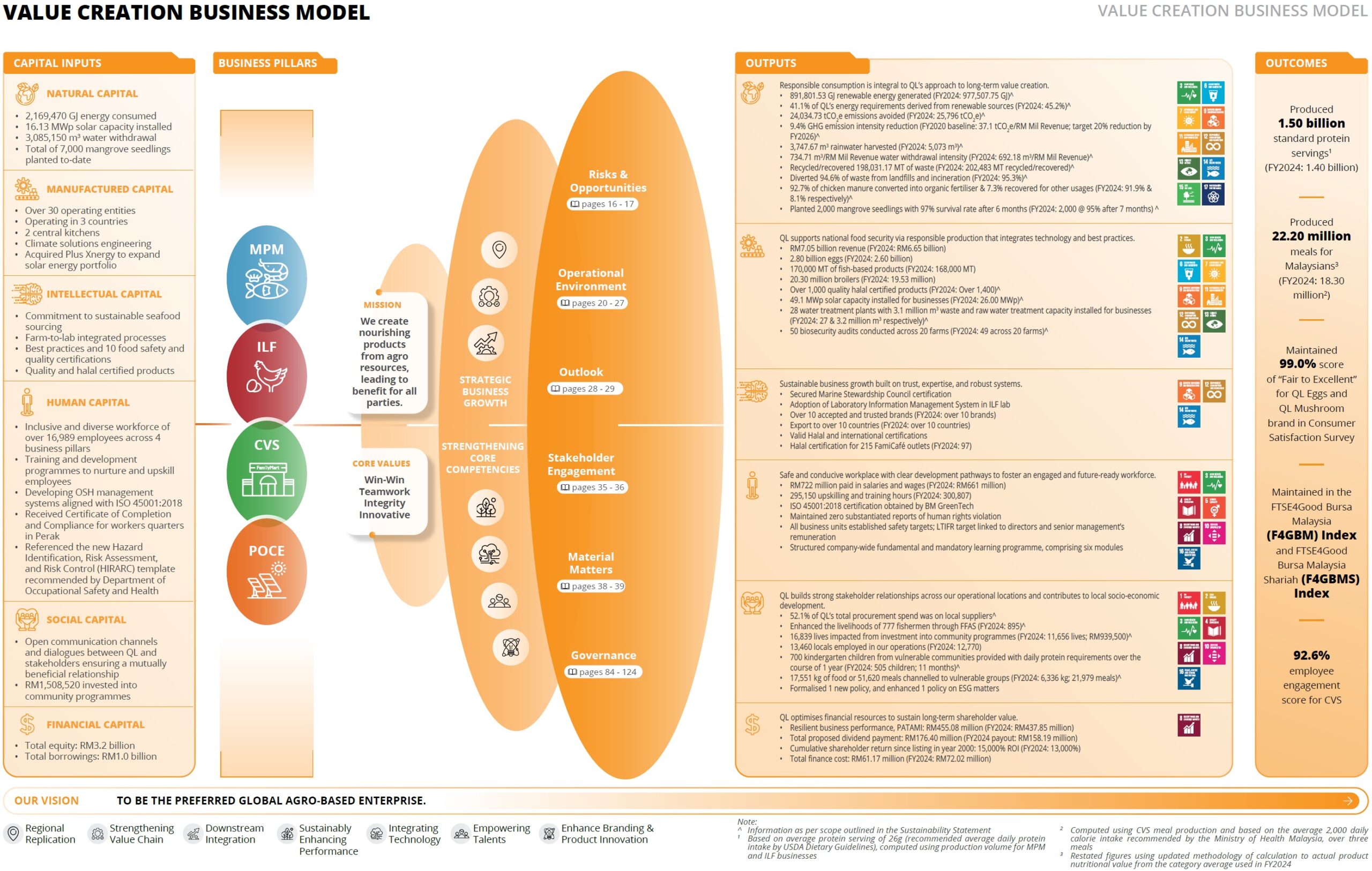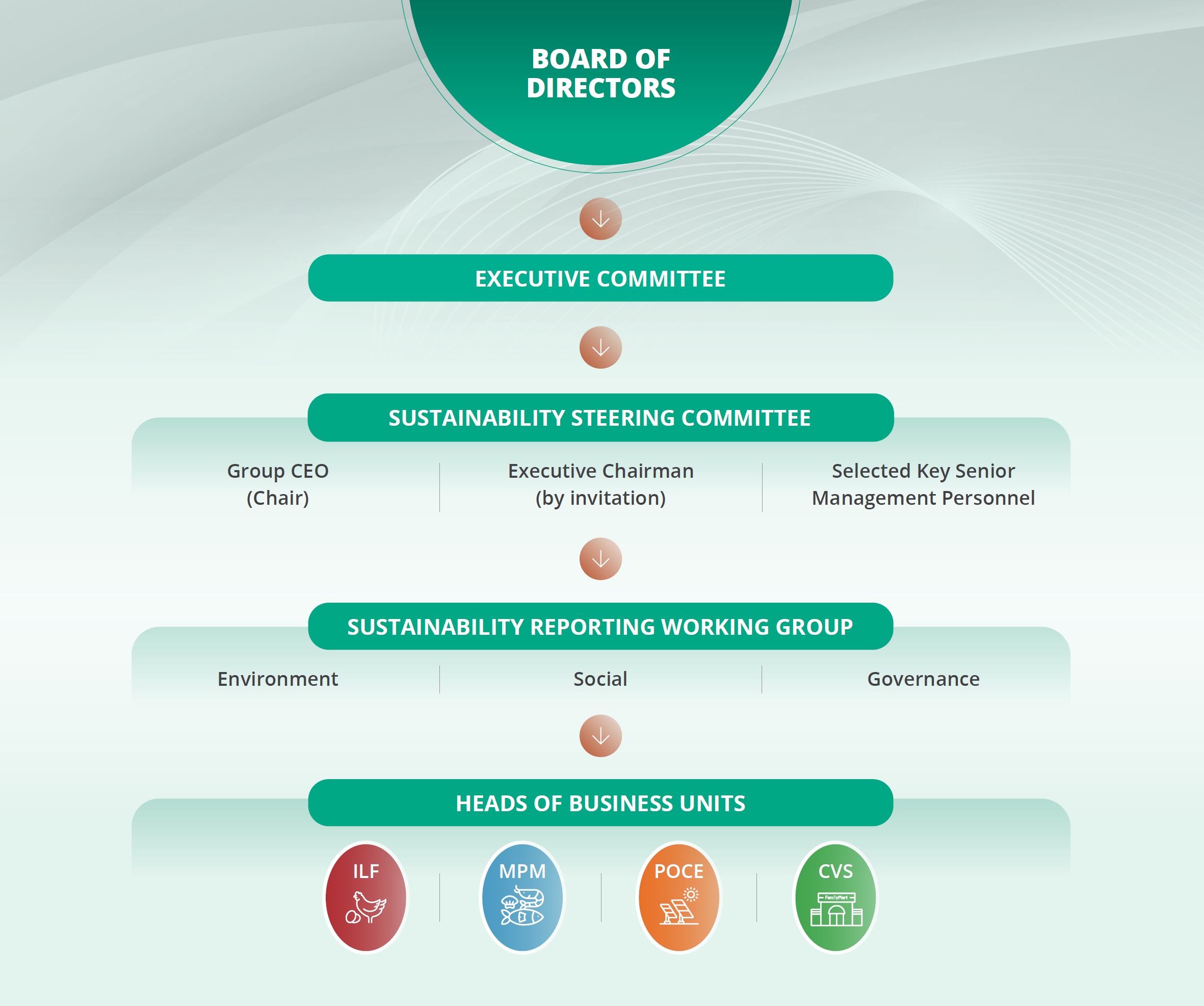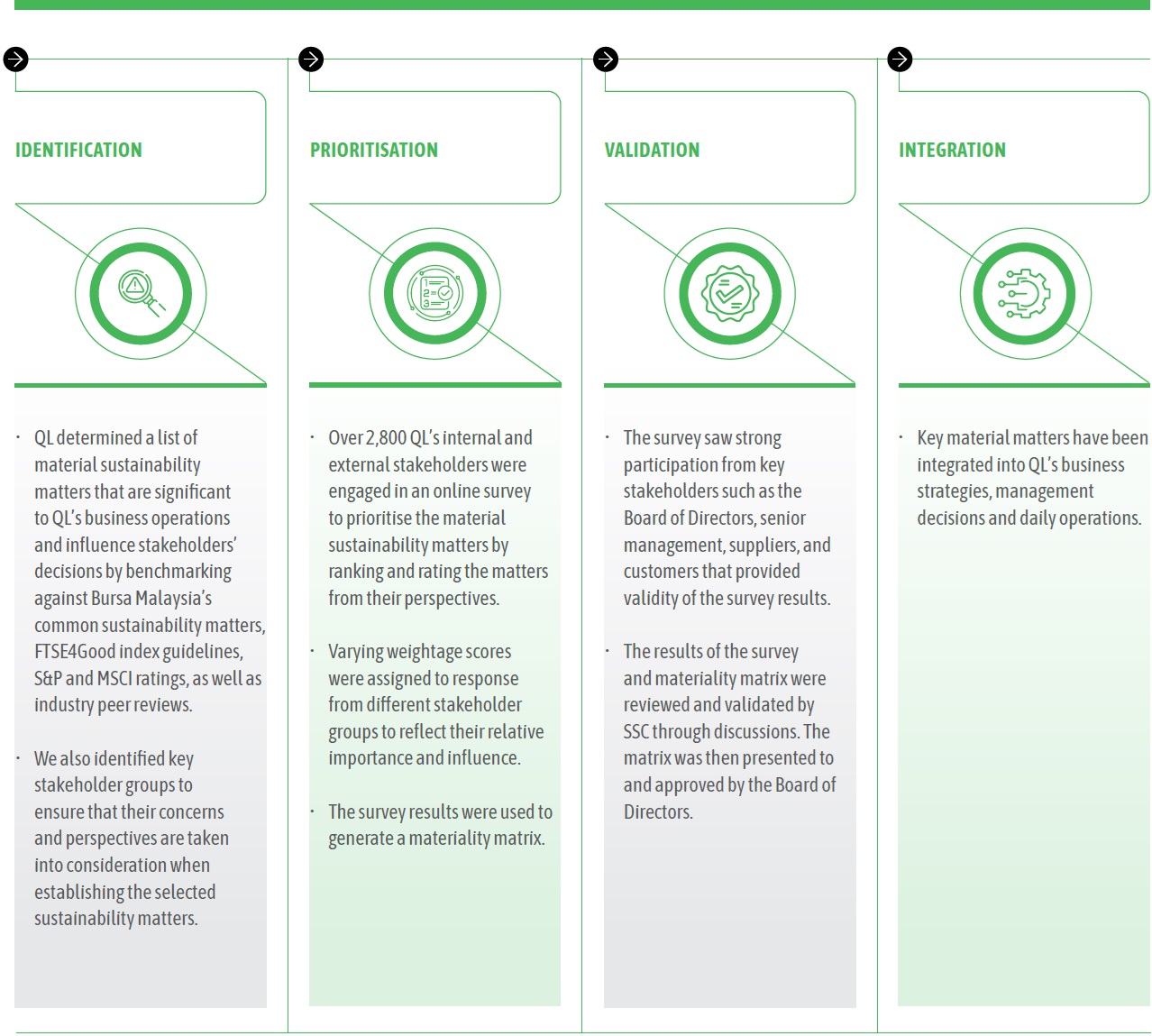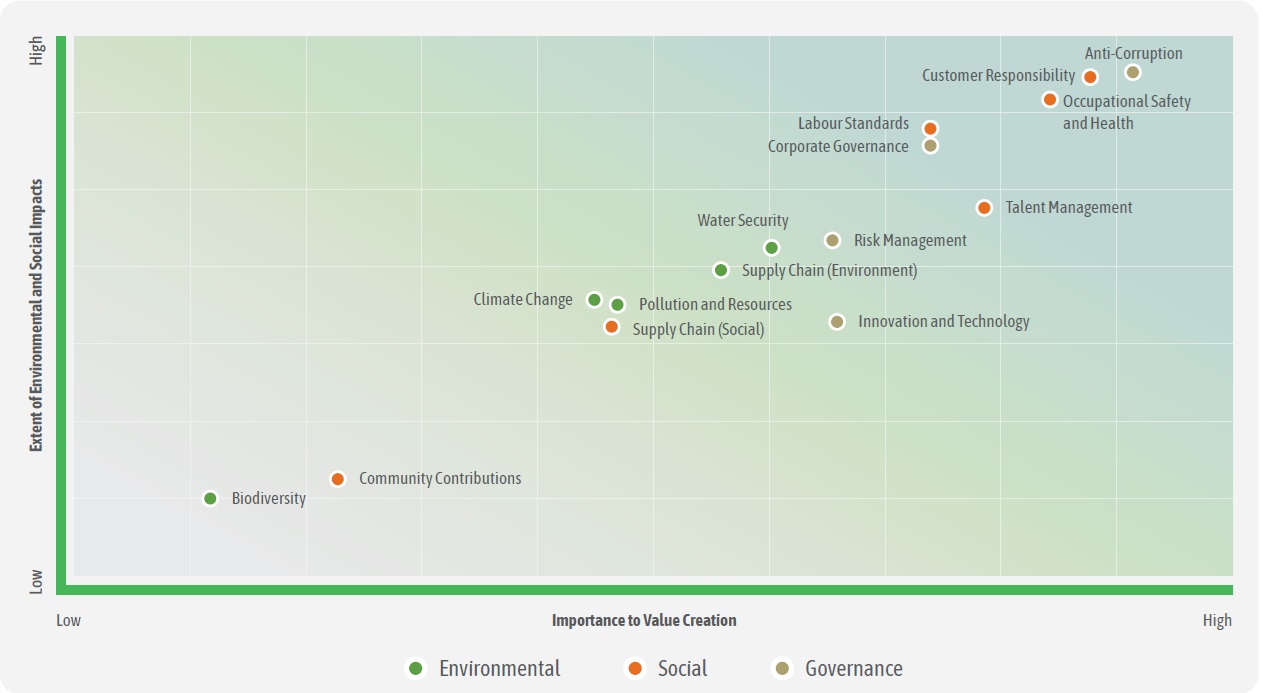Our Value Creation Strategy
Sustainability has always been an integral part of QL’s business operations. In our efforts to create shared value for all, we are cognizant of our role, responsibility and duty to conduct business ethically and uphold good corporate governance, operate in a socially and environmentally responsible manner and adhere to sustainable practices.
Our Value Creation Model

Sustainability Governance
Sustainability at QL is overseen by the Board of Directors (“the Board”) and the Executive Committee (EXCO), who review the Group’s material sustainability and climate-related strategies, priorities, targets, and performance. The Board also oversees associated risks and opportunities, ensuring that key sustainability-related information is effectively communicated to both internal and external stakeholders.
The Board is supported by the Sustainability Steering Committee (SSC), chaired by QL’s Group Chief Executive Officer (CEO) and comprising Heads of Business Units and Business Functions (HOBU). The SSC is assisted by the Sustainability Reporting Working Group (SRW), which guides and monitors QL’s sustainability and climate-related performance across all business units. Business units are responsible for implementing sustainability and climate-related initiatives within their operations in alignment with the Group’s overarching policies and frameworks.


Materiality Assessment
QL conducts full materiality assessment once every three years and review our material matters annually to ensure that our sustainability matters remain relevant and up to date with local and global trends.
In FY2024, QL conducted a double materiality assessment to update our previous materiality matrix that was established in FY2021 to better reflect the latest prioritisation of our material topics. The assessment evaluated the significance of ESG factors in QL’s value creation and the impacts of QL’s business operations throughout its entire value chain on both people and the environment.

The materiality matrix presented below is a restatement of QL’s matrix from FY2021.
QL Materiality Matrix

We have streamlined our previous 17 material matters into 15. To align with emerging ESG issues and evolving stakeholder expectations, we have consolidated and renamed several material matters. Major updates are as follows:
- Climate Change – Merged “Climate Change & Emissions” and “Energy Management”.
- Pollution and Resources – Expanded “Waste & Effluents Management” to include resources management.
- Supply Chain (Environment) – Split out from “Supply Chain Management” to provide focus on environmental impacts including sustainable agriculture practices.
- Supply Chain (Social) – Split out from “Supply Chain Management” to provide focus on social impacts.
- Customer Responsibility – New material matter introduced to provide wider coverage for responsible marketing and advertising.
- Risk Management – New material matter introduced to emphasis on robust risk management.
- Innovation and Technology – New material matter introduced to reflect its trend as an emerging risk and increasing significance to our stakeholders.
- Anti-Corruption – Renamed from “Upholding Business Integrity” to expand coverage on anti-corruption.
Our materiality matrix reveals that 13 material matters are rated as high importance to value creation and high impact materiality to environment and social. Three material matters, namely Anti-Corruption, Customer Responsibility, and Occupational Safety and Health (OSH) are the top three most important and most impactful. While Community Contributions and Biodiversity may have shifted to a lower quadrant, we acknowledge our impacts on local communities and biological resources. Hence, we remain committed to incorporating disclosures pertaining to these matters wherever applicable, considering the relevancy to our stakeholders.
The in-depth assessment concluded a series of material matters that will be the focus of our sustainability efforts and disclosures. It served as the foundation for crafting our ESG plans and establishing a set of targets for our key material topics commencing from 2024.
Explore More